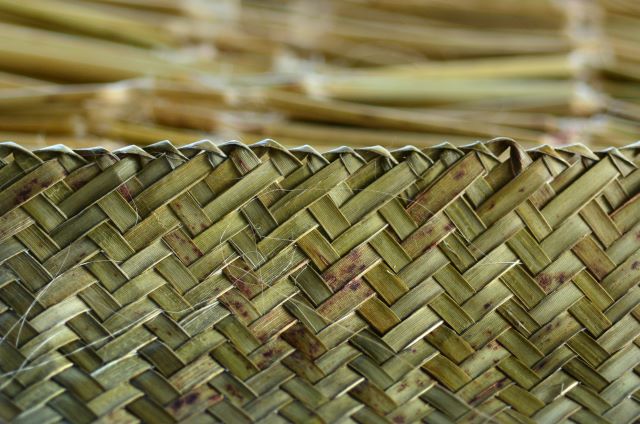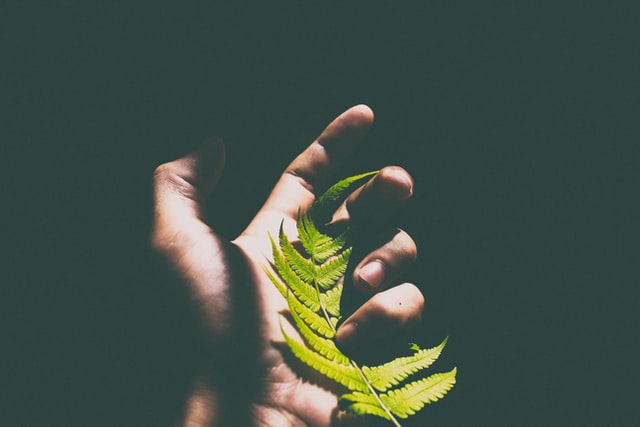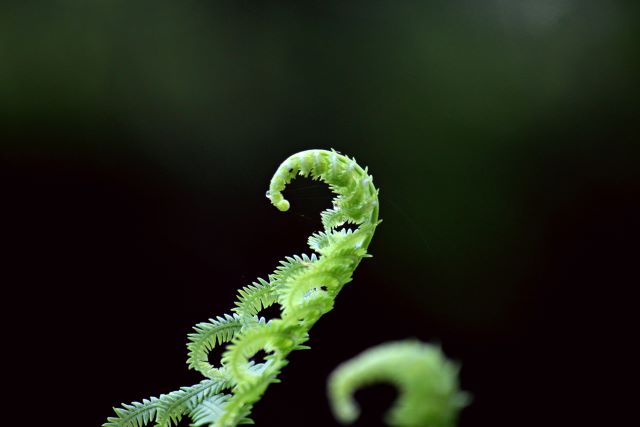International Women's Day 2022: exploring the intersections of gender, racism and colonisation
Tue 08 Mar 2022
For International Women's Day we are highlighting resources that explore the intersections between sexism, racism and colonisation.
What is ‘Intersectionality’?
American legal scholar Kimberlé W. Crenshaw coined the term intersectionality "...to describe the double bind of simultaneous racial and gender prejudice," specifically highlighting the compounding discrimination and harm that Black American women experience from both sexism and racism.
In her TEDTalk 'The urgency of intersectionality' (2016), Crenshaw explains how and why she came up with the concept of intersectionality. She shares that over time she came to understand how women of colour experienced multiple forms of intersecting discrimination including racism, sexism, classism, xenophobia, heterosexism and ableism, based on their diverse and multiple identities.
To learn more about Crenshaw's work see her article Mapping the Margins: Intersectionality, Identity Politics, and Violence against Women of Color (1991) and her book chapter Toward a field of intersectionality studies: Theory, applications, and praxis (2013).
Intersectionality in Aotearoa: Exploring the compounding effects of racism, sexism and colonisation
Te Aorerekura: the National Strategy to Eliminate Family Violence and Sexual Violence acknowledges the gendered nature of family violence and sexual violence, highlighting that "Women are three times as likely as men to experience intimate partner violence and wāhine Māori are more likely to be impacted by violence than any other ethnicity." The strategy highlights the compounding effects of multiple forms of discrimination:
"This personal use of power, dominance and entitlement is enabled by socially accepted hierarchies of power that include sexism, racism, colonisation, ableism, ageism, homophobia, biphobia, and transphobia, transmisogyny, and classism. Violence is consequently more likely to occur in some situations than in others. As a result, some people are targeted by abusers more than others, and can experience silencing, stigma, barriers to seeking help, and more frequent and more severe violence."
Te Aorerekura also draws attention to the significant impact on wāhine Māori from the intersections of racism, sexism and colonisation:
"Wāhine Māori are more likely to be subjected to family violence or sexual violence than any other ethnicity or gender (FVDRC 2016; Wilson 2016; Ministry of Justice 2021). Family violence and sexual violence are leading causes of harm for wāhine Māori, nearly 50% of whom experience partner abuse in their lifetime. The combination of colonisation, racism and sexism in Aotearoa New Zealand increases impacts associated with intergenerational trauma for wāhine Māori (Pihama, Cameron, and Te Nana 2019)."
Māori researchers have been documenting the intersections between Māori experiences of family violence and sexual violence, colonisation and institutional racism for decades. Most recently, researchers from Ngā Wai a Te Tūī have shared initial findings from He Waka Eke Noa, a research project that asks Māori about their experiences of violence in Aotearoa. The research team, including Professor Linda Tuhiwai Smith, Professor Leonie Pihama and Shirley Simmonds, will be sharing findings from the research through online webinars on 24 March 2022 and 7 April 2022.
Te Aorerekura also acknowledges that:
"Preventing family violence and sexual violence requires an understanding that family violence and sexual violence are transgressions of mana and whakapapa. There are solutions within the promotion and strengthening of whānau ora that require a focus on healing, restoration, redress and a return to a state of noa."
Kaupapa Māori and mātauranga Māori offer paths for healing, restoration, redress and returning to a state of noa. Leonie Pihama, Ngaropi Cameron, Mereana Pitman and Rihi Te Nana have published Whāia Te Ara Ora: Understanding and Healing the Impact of Historical Trauma and Sexual Violence for Māori (2022). The book explores Māori views on historical and intergenerational trauma, the impact of sexual violence on Māori whānau, hapū and iwi, and how tikanga (cultural understandings and practices) can foster healing. There are also posters and resources that address Kaupapa Māori analysis of colonial risk factors, Kaupapa Māori Principles, and Kaupapa Māori Principles & Healing Trauma.
In addition, Ngā Wai a Te Tūī and Tū Tama Wāhine o Taranaki recorded six kōrero that explore Kaupapa Māori (2020) for practitioners and researchers.
Addressing intersectionality in your work: Resources, events and further reading
International
UN Women has published the Intersectionality resource guide and toolkit (2022). The guide and toolkit are designed to help individuals and organisations address intersectionality in programmes and policies. It provides an overview of what intersectionality is. It outlines eight enablers needed to apply an intersectional lens:
- Reflexivity
- Dignity, choice and autonomy
- Accessibility and universal design
- Diverse knowledges
- Intersecting identities
- Relational power
- Time and space
- Transformative and rights-based.
It then provides a framework for action and outlines four different tools to use as part of an intersectional approach. In explaining how to use the guide, it says:
"Intersectionality is an approach, a mindset; not a mere toolkit. It is a way of thinking, reflecting and working."
"Transformative change begins where ‘the individual and system meet’ and intersectionality must be addressed through a process that focuses on self-reflection, relationships and contexts. The effectiveness of an intersectional approach depends on how willing the user is to challenge themselves and interrogate their own attitudes and ways of working and cannot be achieved via checklists or prescriptive processes. With this mindset the user will be able to then apply the enablers and action framework across their existing work processes, whether this is at policy, programmatic or institutional level."
Aotearoa
There is a free online Te Tiriti-based futures + Anti-racism 2022 conference taking place 19-28 March 2022. The event includes speakers and leaders over 10 days discussing institutional racism and anti-racism, decolonisation, building Te Tiriti-based futures and transforming the constitution.
To further explore the intersection of racism, sexism and colonisation see the following:
- Leonie Pihama wrote Mana wahine: decolonising gender in Aotearoa (2021), published in the Australian Feminist Studies journal
- Jacinta Ruru, Angela Wanhalla & Jeanette Wikaira compiled An anti-racist reading list for New Zealanders (2020) published on the Spinoff
- Leonie Pihama, Linda Tuhiwai Smith, Naomi Simmonds, Joeliee Seed-Pihama and Kirsten Gabel edited and compiled writings on Mana Wahine and/or Māori women’s writings on Māori feminist approaches: Mana Wahine reader: A collection of writings 1987-1998, Volume I (2019) and Mana Wahine reader: A collection of writings 1999-2019, Volume II (2019).
Also see Te Tiriti Kōrero podcast series from Community Research (2022) which features:
- Te Tiriti Kōrero with Dr Chelsea Grootveld – “Our mokopuna don’t have time for us to muck around.”
- Te Tiriti Kōrero with Dr Kathie Irwin – “When you take a critical analysis view, a kaupapa Māori view, you don’t start with the individual.”
- Te Tiriti Kōrero with Mike Smith – “We have to invest in the vision of all peoples in this country.”
- Te Tiriti Kōrero with Ali Hamlin-Paenga – “We do not need others to be Māori for us.”
For more information and resources see the topic Intersectionality on our Recommended Reading list.
To learn more about how experiences of violence, coping, accessing help and healing are different for people who experience intersecting forms of discrimination see our library under the quick topic searches for Specific Groups.
Related news
Gender Attitudes Survey
Gender Equal NZ, led by The National Council of Women of NZ – Te Kaunihera Wāhine o Aotearoa, published results from the 3rd Gender Attitudes Survey 2021 (2022). This survey, along with the previous surveys run in 2017 and 2019, shows that change in attitudes is occurring slowly, and some gains are temporary. In all three years the survey has been run, 20% of respondents did not agree that gender equality is a fundamental right. In addition, “...when it comes to violence towards women and toxic masculinity, the attitudes of a small minority have hardened since the previous survey in 2019,” said Dr Suzanne Manning, President of The National Council of Women of NZ – Te Kaunihera Wāhine o Aotearoa. She said:
“It’s frankly depressing that in 2022, 17% of respondents still believe that hitting out is an understandable response for a man when his wife or girlfriend tries to end a relationship (up from 9% in 2019), while 18% of respondents believe that showing physical or emotional weakness makes a man less of a man (up from 12% in 2019).
For more information watch the video recording of the Gender Attitudes Survey Launch Webinar (2022).
Theme for International Women's Day
The UN Women theme for International Women's Day for 2022 is Gender equality today for a sustainable tomorrow recognising the link between gender, social equity and climate change. The UN Women media release highlights that "Women and girls experience the greatest impacts of the climate crisis as it amplifies existing gender inequalities and puts women’s lives and livelihoods at risk." UN Women further said "As women and girls bear the burden of climate impacts, they are also essential to leading and driving change in climate adaption, mitigation and solutions. Without the inclusion of half of the world's population, it is unlikely that solutions for a sustainable planet and a gender equal world tomorrow will be realized."
This theme aligns with the priority theme for the upcoming 66th Commission on the Status of Women (CSW66) also in March 2022: “Achieving gender equality and the empowerment of all women and girls in the context of climate change, environmental and disaster risk reduction policies and programmes”. International agencies are increasingly exploring the links between climate change and violence against women. To learn more search our library under climate change. Also see the recently completed research report from Ngā Pae o te Māramatanga and Manaaki Whenua - Landcare Research on He huringa āhuarangi, he huringa ao: a changing climate, a changing world (December 2021).
Related media
Māori Women: Caught in the Contradictions of a Colonised Reality, E-Tangata, 25.09.2022
08 Alison Mau | New Zealand’s #metoo reckoning, RNZ re_covering podcast, 10.03.2022
International Women's Day: New Zealand women speak about "breaking the bias", NZ Herald, 06.03.2022
The Side Eye’s Two New Zealands: The left behind, The Spinoff, 03.03.2022
Minority still hold outdated views on gender, stereotypes - survey, RNZ, 03.03.2022
Acceptance of domestic violence growing as attitudes 'creep' towards conservatism, Stuff, 01.03.2022
In Focus: International Women's Day, UN Women News, 01.03.2022
Wāhine, White Women, and Waitangi, E-Tangata, 13.02.2022
The Mana Wāhine inquiry isn’t over yet, The Spinoff, 02.08.2021
Moana Jackson: Decolonisation and the stories in the land, E-Tangata, 09.05.2021
Image: Burcu Köleli for UN Women (2022)









